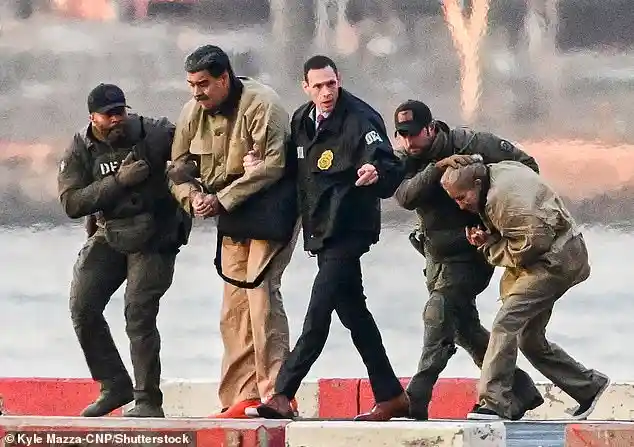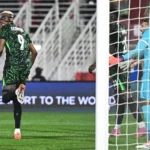Nicolás Maduro stood before a federal judge in Manhattan this week, not as the president of Venezuela, but as a defendant facing serious criminal charges brought by the United States.
Just two days earlier, he had been in Caracas. Now, he was in a New York courtroom, telling the judge plainly that he had been taken against his will.
He pleaded not guilty to accusations of narco-terrorism and insisted he was still Venezuela’s rightful leader. His wife, Cilia Flores, who was arrested alongside him, also entered a not guilty plea.
The case has quickly become one of the most explosive international legal and political moments in decades.
A Pre-Dawn Raid That Shook Latin America
The arrests happened in the early hours of Saturday when U.S. special forces launched a coordinated raid on Maduro’s residence in Caracas. The operation reportedly involved air cover from warplanes and naval support positioned off Venezuela’s coast.
Within hours, Maduro and Flores were out of the country, flown to the United States to face charges that Washington has been building for years, accusing Maduro’s government of using drug trafficking as a weapon to destabilize the region.
The suddenness of the raid stunned both supporters and critics, and it immediately raised alarms about sovereignty, legality, and the risk of wider conflict.
Trump Declares New U.S. Role in Venezuela
Shortly after the operation, President Donald Trump made an extraordinary announcement — declaring that the United States would now oversee Venezuela’s transition and take charge of rebuilding the country’s broken economy, particularly its oil sector.
Trump argued that the move was necessary to restore stability and stop Venezuela from being used as a hub for crime and corruption. He also said the U.S. needed “full access” to Venezuela’s resources in order to help rebuild what he described as a collapsed state.
The comments sparked backlash around the world, especially in Latin America, where memories of U.S. interventions remain deeply sensitive.
International Outcry and Regional Tensions
Global reaction was swift.
The United Nations called for respect for Venezuela’s sovereignty and warned that international law must not be sidelined.
Mexico’s president publicly rejected the idea that any nation had the right to control another, while Colombia’s President Gustavo Petro went further, suggesting he was ready to resist U.S. actions if necessary.
Across South America, leaders expressed concern that the operation could destabilize the region and set a dangerous precedent.
Meanwhile, Cuba claimed that dozens of its citizens were killed during the raid — a claim that has not been independently confirmed — adding another layer of diplomatic strain.
Venezuela’s Political Vacuum and Uncertain Future
Maduro’s removal ends more than two decades of left-wing rule that began under Hugo Chávez and continued through Maduro’s controversial presidency.
His time in power was marked by economic collapse, international sanctions, mass emigration, and repeated accusations of election rigging and repression.
Over seven million Venezuelans have fled the country in recent years, creating one of the largest migration crises in the world.
Now, with Maduro gone, the country faces a leadership vacuum.
Delcy Rodríguez, his former vice president, has been named interim leader and has signaled a willingness to cooperate with Washington — a sharp shift from the government’s previous defiant tone.
However, Trump has made clear that he is not interested in restoring opposition figures previously recognized by Western governments as legitimate winners of disputed elections.
Oil, Power, and Strategic Interests
Venezuela sits on the world’s largest proven oil reserves, but years of sanctions, mismanagement, and infrastructure decay have crippled production.
U.S. oil companies saw their share prices rise following Trump’s announcement, reflecting expectations that American firms could gain new access to Venezuelan energy resources.
The United States has also increased its military presence in the Caribbean, including deploying an aircraft carrier, signaling that it intends to maintain leverage over the situation even without troops on Venezuelan soil.
Protests, Celebrations, and a Divided Public
Reactions among Venezuelans have been sharply divided.
Supporters rallied in Caracas, chanting Maduro’s name and waving flags, while lawmakers in the Venezuelan parliament shouted slogans in his defense.
In New York, activists protested outside the courthouse, accusing the U.S. of imperialism and corporate greed.
At the same time, many Venezuelans living abroad expressed relief. Some called Maduro’s arrest the end of a long national nightmare, saying they hoped it could finally open the door to change.
A Moment That Redefines Power and Precedent
Whether Maduro is eventually convicted or not, the impact of his arrest is already historic. A former head of state being seized abroad by U.S. forces and placed on trial in New York marks a dramatic shift in how global power is exercised.
The situation raises difficult questions about sovereignty, international law, and the future of U.S. influence in Latin America — questions that will likely shape global politics for years to come.
For now, the world is watching to see whether this moment becomes the start of Venezuela’s recovery or the spark for a deeper and more dangerous crisis.
Share on Facebook «||» Share on Twitter «||» Share on Reddit «||» Share on LinkedIn




